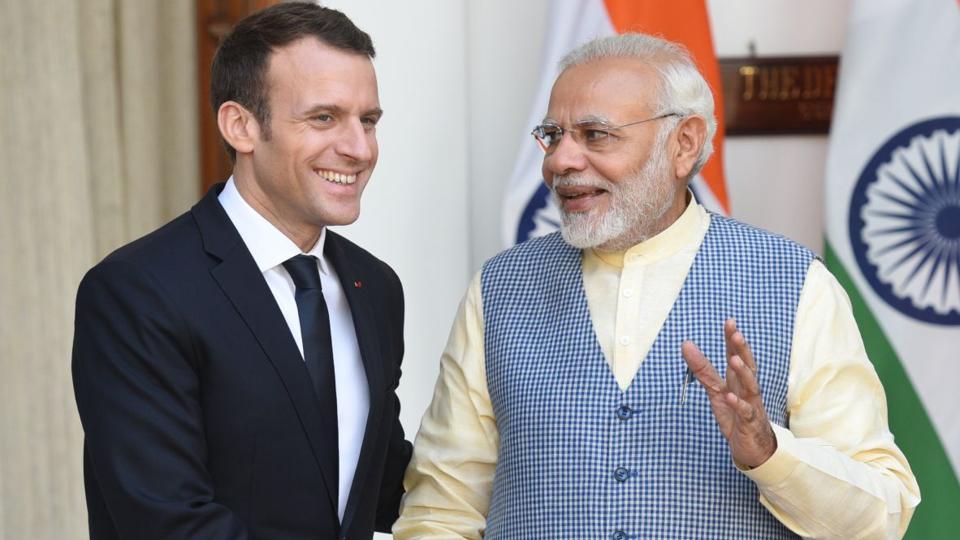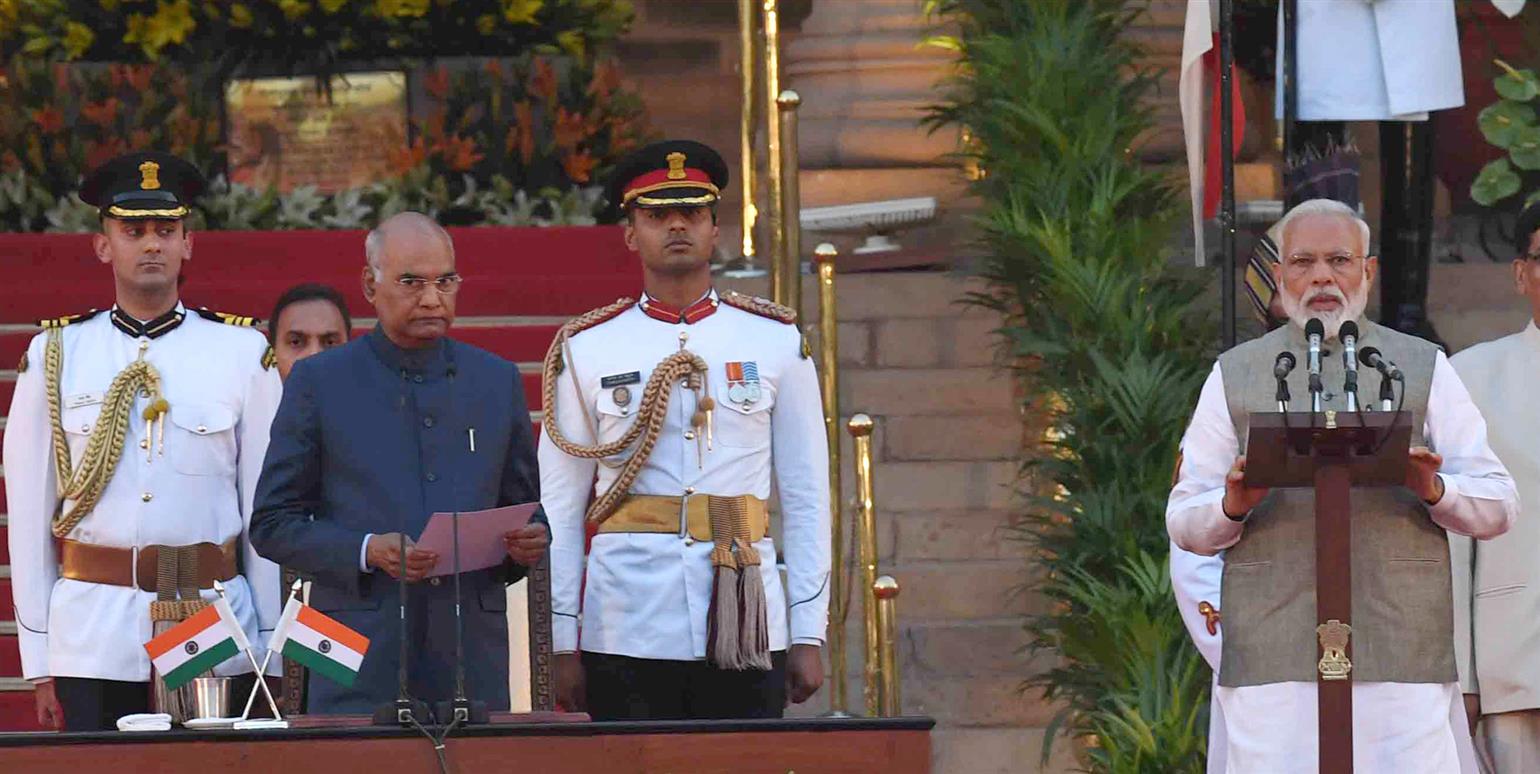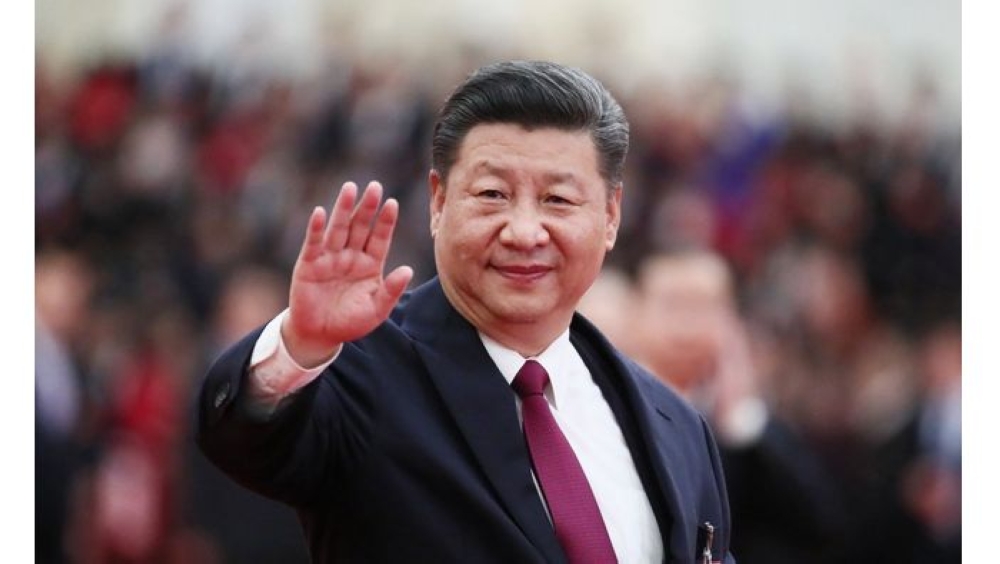Superheroes to battle climate change
The world has come a full circle in the four years since the Paris Agreement to fight climate change was signed during Cop21 in December 2015.
At the end of the fortnight-long meeting, environmentalists all around the globe cheered as the world emerged stronger and more confident of being able to curb the greenhouse gas emissions this century , by taking pledges from both developed and developing countries. Consequently the global leaders agreed to limit the global warming to below 2°C as compared to the pre-industrialisation levels and trying their best to keep the rise below 1.5° C.
The agreement in Paris was nothing short of a miracle as the negotiators from around the world had not even agreed on a draft text before the final round began. But finally, it was thanks to bold and dynamic leadership and commitment of the United States President Barak Obama, French President Francois Hollande, Chinese leader Xi Jinping and of course Indian Prime Minister Narendra Modi that the world came together to deliver the Paris Climate Agreement. The thundering applause in the UN conference hall was testimony to what was achieved.
However, four years later, the scenario looks as bleak as it had been before the breakthrough in Paris. Obama’s successor, Donald Trump, has announced that US is exiting the Paris treaty. Not just that, he has appointed a well-known coal lobbyist as the head of the Environment Protection Agency!
Across the globe, there has been a covert and overt backlash against curbs on mining and oil industries. For example, leaders of Canada and Australia, two nations with very small populations but disproportionately high in carbon emissions thanks to their large mining, coal and oil industries, are caught in a bind between their public pronouncements and support for Paris climate Agreement, but practically and politically unable to initiate bold steps to curb their national emissions.
Most of the other global leaders seem to be too pre-occupied with their own political or domestic agenda, leading to a continued and alarming rise in global warming and climate change. This week the concentration of carbon dioxide in the atmosphere crossed 415 ppm, an historic level never seen before by the human civilisation. That deserves no applause.
However, it not be too late yet to bring the world back from the brink, Trump notwithstanding. Armed with a fresh mandate, Indian Prime Minister Narendra Modi is back in office and as he takes oath this evening, he is certain to bring the battle to save the climate right on top of not only his agenda, but also for the world.
Renewed energies

Macron has taken several bold steps to ensure that France keeps its part of the deal that was agreed in Paris
Modi’s re-election is definitely one of the better bits of news that has come in recent times as humanity continues to struggle with global warming. But Modi is not alone in this hot, flat and crowded world that is waiting for transformation to happen. As in Paris in 2015, Modi will join hands with two other superheroes, China’s Xi Jinping and the French President Emmanuel Macron.
Ever since he took charge in two years ago, Macron has taken several bold steps to ensure that France keeps its part of the deal that was agreed in Paris. Despite popular protests of the Gilets Jaunes or Yellow Vests that have crippled France for over six months, Macron remains firm on his plans to increase carbon tax, not just for the industry, but the consumers as well.
Across the seven seas, in China, President Xi , amidst the national obsession of getting rich through ‘social capitalism,’ had the courage not only to propose creation of ‘shared future through an ecological civilisation’ but to initiate a real life project in the prefecture of Pu’er in Yunnan province to assess the validity of such an ecological civilisation.
Modi, Macron and Xi stand out amidst the miserable and frustrating political scenario dotted with the inaction of the world leaders on climate change. Many leaders harbour overly nationalistic motives, bring about inward looking trade barriers and at the same time questioning the climate science. There have been numerous attempts to stop funding research on climate change.
A deficit of political will, due to the feared backlash from the voters, has often been cited as one of the main reasons why leaders hesitate about taking decisive action against climate change. However, with Modi coming back in the office and with a stronger than before mandate, his win is poised to act as catalyst for the global change. The track records of the trinity of climate action superheroes are strong testimonies of the potential transformation that could emerge on the lines of French revolution, China’s long march and India’s independence movement.
Existential threats to humanity
The trio has maintained for long that climate change and terrorism are the two most formidable challenges of our times. Both pose existential threat to the life on the planet. Interestingly, a number of studies show that both are interlinked. Terrorism of recent years has its roots in climate change that results in continuing droughts, rise in the level of sea and extreme climate events like floods, storms or tornadoes that lead to large-scale destruction and which in turn triggers massive migration due to falling incomes, growing inequality and poverty that also push the youth to terrorism or taking up of arms.
It is now well recognised that pledges by the world leaders made under Paris Climate Agreement in 2015 fall far too short of keeping the temperature rise of 2°C below the pre-industrial level, leave alone 1.5 deg C. Climate change is running faster than us. Ambitious targets, as dictated by science in the reports of IPCC, particularly Special Report published in 2018, mean that the world has to reduce its dependence on fossil fuel much more rapidly, phasing it out completely by 2050 to keep the temperature rise below 1.5°C.
In its cover story before the elections, the TIME magazine called Modi ‘divider in chief’. Yes, indeed, he is. He divides actions from inactions. “Real test of the leadership is not only welcoming the ‘Inconvenient Truth’ but in devising , formulating and implementing a strategy that results in what I call decisive and timely ‘convenient action’ to deal with this very truth,’’ Modi had said, referring to Inconvenient Truth, Al Gore’s famous narrative of climate change, when he was chief minister of Gujarat, one of the 29 states of India. Even at that time, much before the Paris Agreement, Modi had been acknowledged as a climate warrior, if not a superhero, due to his measures like covering irrigation canals that crisscross the state with solar panels, which not only reduced water loss through evaporation, but also produced a fair amount of electricity, making Gujarat one of the few power surplus states in the country.
Macron, perceived as arrogant and dogmatic, has recently been humbled by the French protests against his bold move of imposing the carbon tax. He has now announced reduced taxes but did not abolish the carbon tax. He went on to declare that France would phase out coal power by shutting down all coal-fired power stations by 2021 and if he meets the deadline, France would become the first large economy around the world which is not powered by coal.
China has also made electrifying progress in electric vehicles (EVs) too. The country is now home to the world’s largest fleet of EVs, which have gone and played a key role in controlling the air pollution large Chinese cities. After hard efforts and investing billions of dollars in combatting air pollution in Beijing, pollution has reduced by 30 per cent as per UNEP’s 2019 report. China is now increasing the gap with other large economies in the rate of adoption of EVs. In 2018, every third EV sold in the world was sold in China, which accounted for sales of 1.3 million new EVs as against a global total of 4 million EVs last year.
Within a year of his first term as Prime Minister, Modi had dramatically increased India’s own target of solar power to 175 GW by 2022, equivalent to removing 350 coal fired power plants of 500 MW each. But, he did not limit his actions or ambitions to India alone. In a truly statesman like gesture, Modi launched the International Solar Alliance, along with his then French counterpart and Macron’s predecessor, Francois Hollande.
Modi’s objective was to take solar technology to the more than 120 nations that lie between the two tropics, Cancer and Capricorn, across the globe and that could benefit the most from solar power. The ISA has also created a fund to help the poorer nations install solar power and also facilitates transfer of technology and training between the member states of ISA.
Before the United Nations coined the term ‘Agenda 2030: Leaving no one behind’ , Modi had already been a strong proponent of Sabka Saath Sabka Vikas (With all, Development for All), a slogan that caught on rapidly with other global leaders. Soon, President Xi coined his own slogan of Shared Future, while Macron said “Let us build the language of action, the 21st century is watching us and our children are waiting for us.”
Quick and decisive leadership
The three leaders have built strong reputations for their quick and decisive actions that lead to rapid and maximum impact. All three also share the view that to start phasing-out the most powerful greenhouse gases, the HydroFlouroCarbons or HFCs, under the Montreal Protocol and making cooling more energy efficient is powerful way to make initial and faster control in rise of temperature . The troika recognises that HFCs phase out is low hanging fruit that would be instrumental in benefiting farmers and common people, besides enhancing the efficiency and ensuring preservation of food through cold chain.
No wonder then that the trio of climate superheroes has been called an winning team. The three have stacked up several awards and their awards are rewards for the people, planet and protection of environment. For instance, the 2018 Champion of earth award was jointly given by United Nations to Modi and Macron. United Nations Secretary General, while presenting award to PM Modi, had said “Prime Minister Modi understands the enormous benefits of climate action. Many other leaders also understand. The difference is that Prime Minister Modi not only understands, but that he acts with enormous energy to make this change. And this leadership is today more necessary than ever.”
Modi and Xi both won the highest civilian award, Order of Zayed, of UAE, as well as the prestigious Russian award, ‘Order of St Andrew the Apostle’.
A few weeks earlier, while accepting the Seoul Peace Prize, Modi had said that India’s growth story is not only good for the people of India but also for the entire world. He also said that despite having a historically low carbon footprint, India has been playing an active role in the global fight against climate change. “India, as a responsible member of the international community, has been in the forefront of our collective fight against climate change,” he added. Modi then dedicated the award money of USD 200,000 to the Clean Ganga project. That act of Modi got minimal visibility in the media in the heat of general election , but on the world stage Modi’s act was praised as his passion for environment.
Is Noble troika of Modi, Macron and XI heading for Nobel Peace Prize?
Rajendra Shende is Chairman TERRE Policy Centre, former Director, UNEP, Consulting Editor of Media India Group and IIT Alumnus.
The views expressed in this article are of the author and do not necessarily reflect those of Media India Group.











